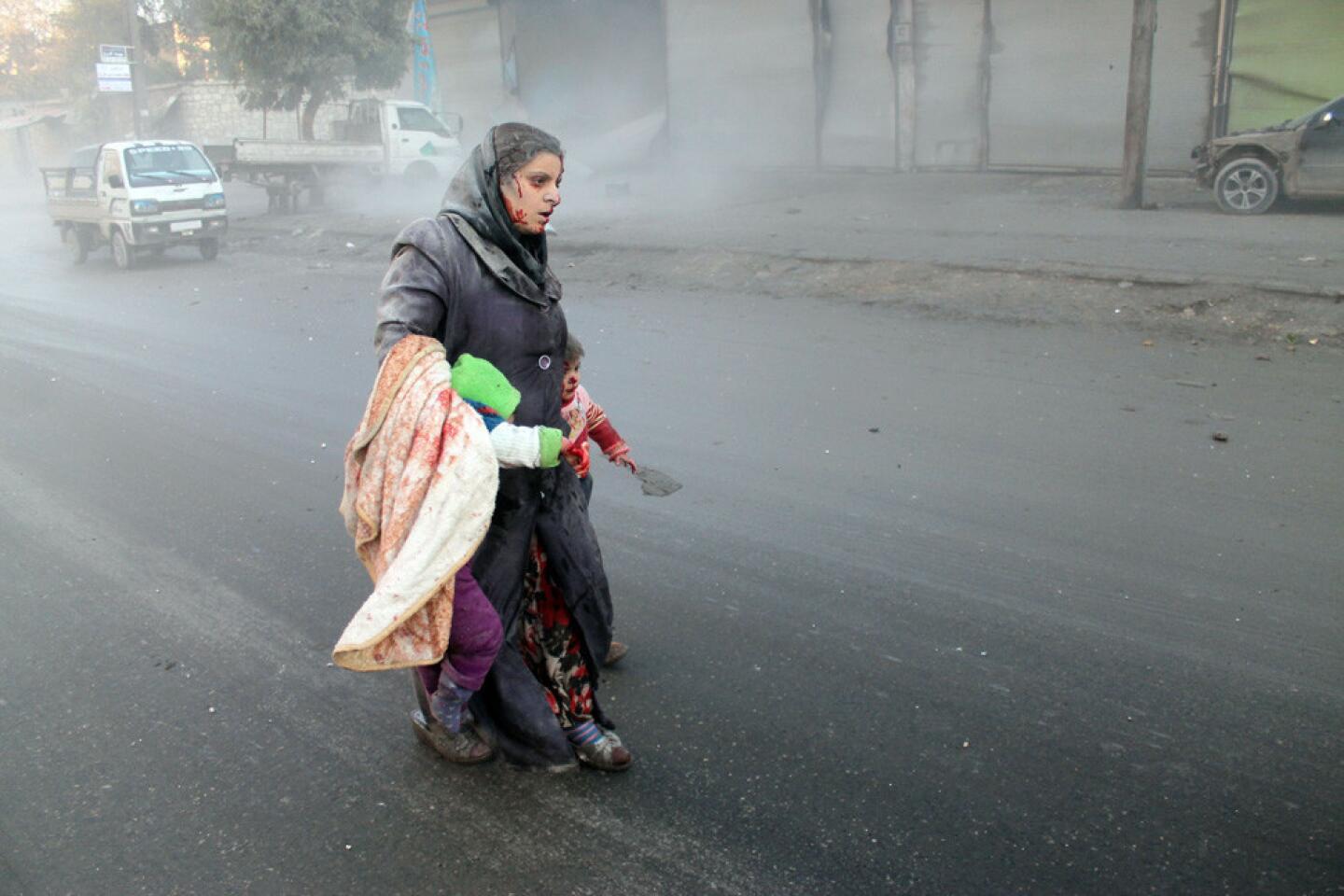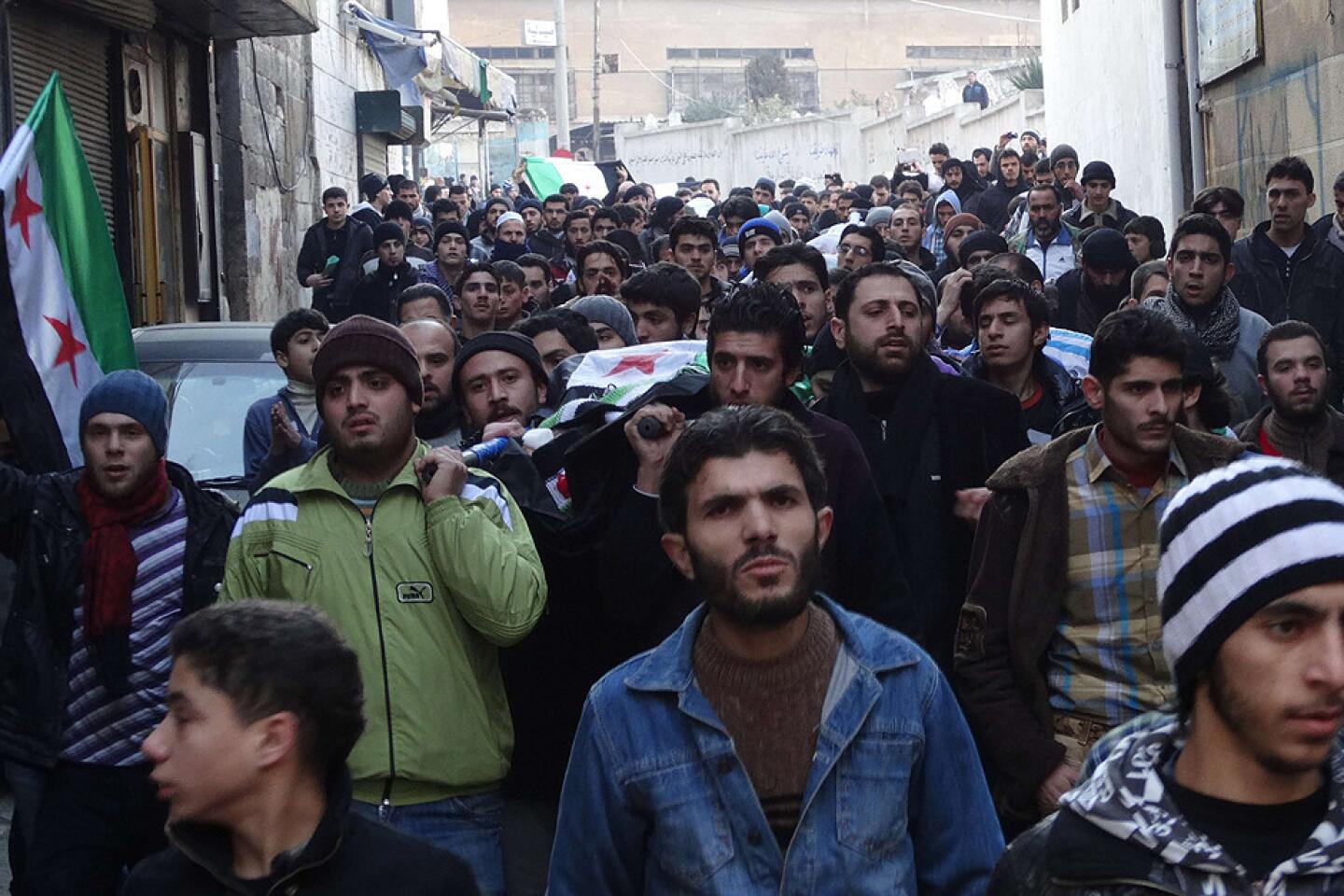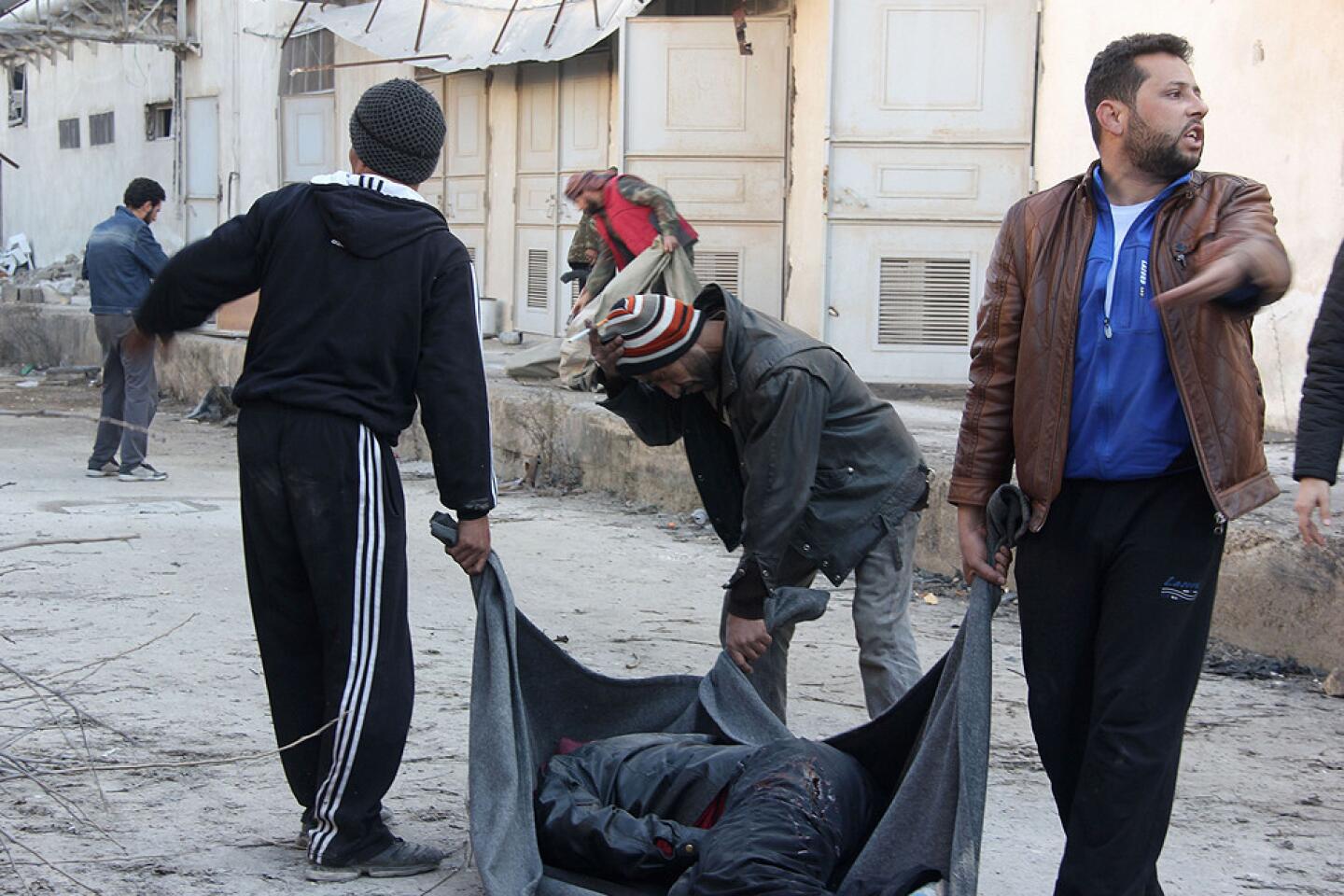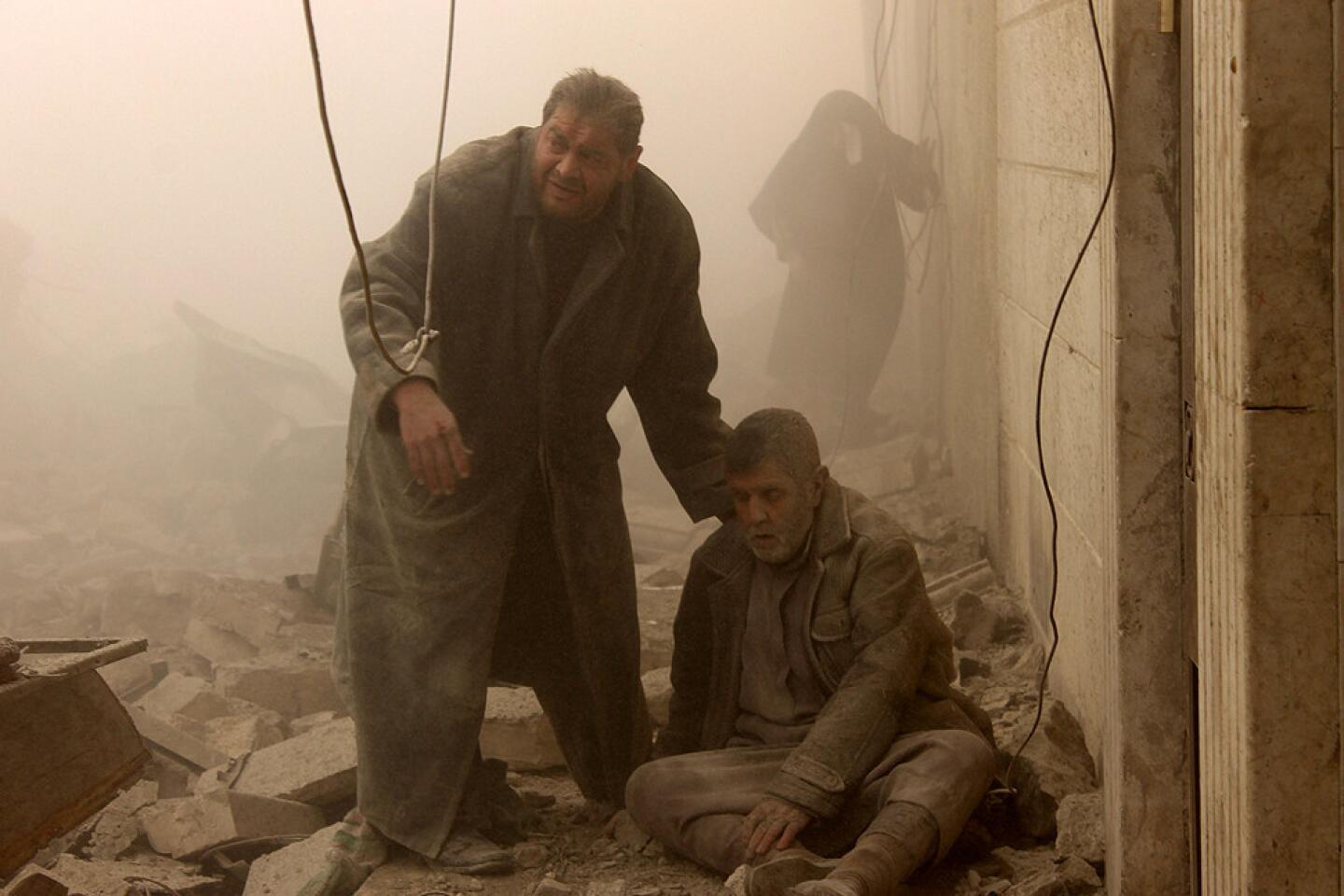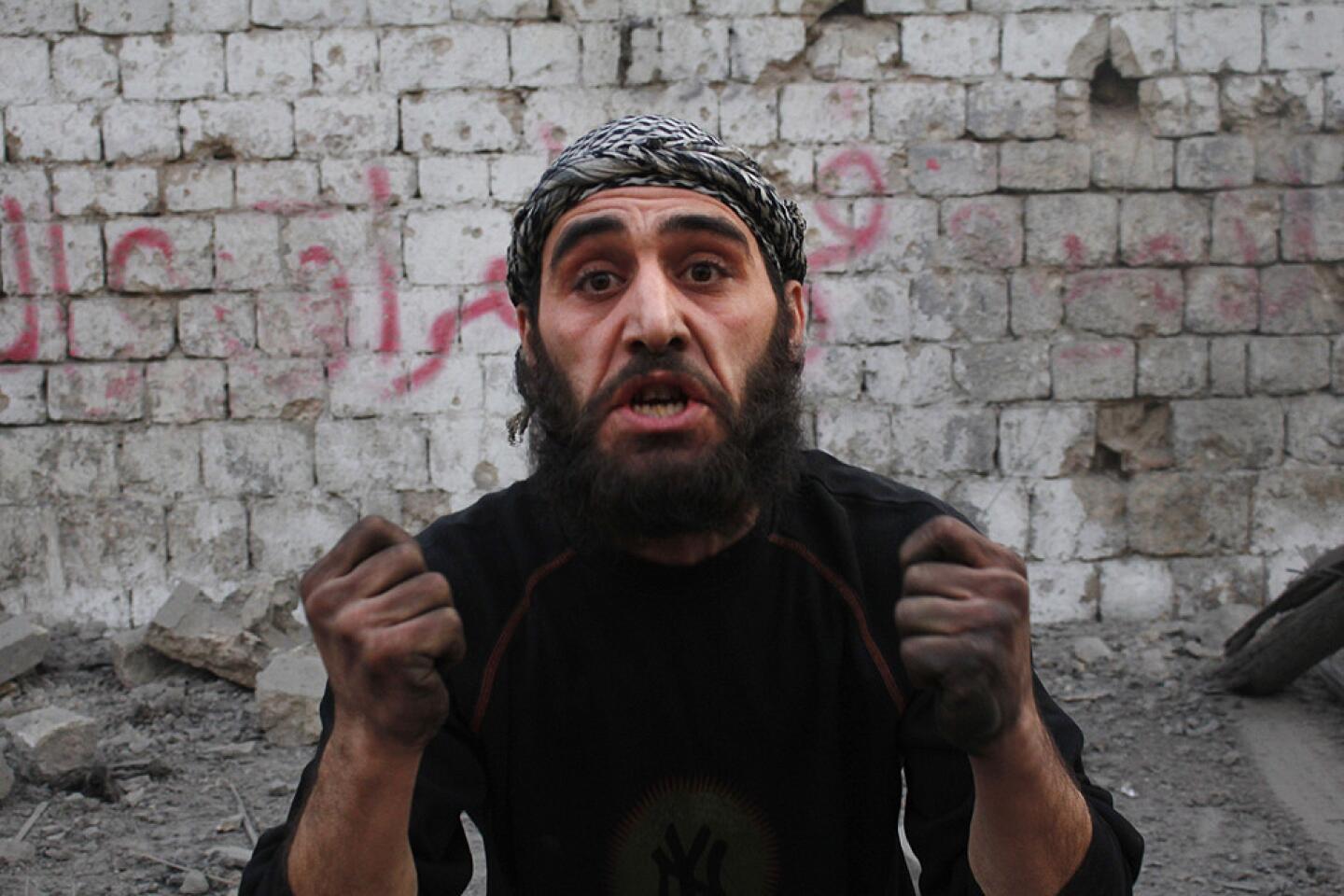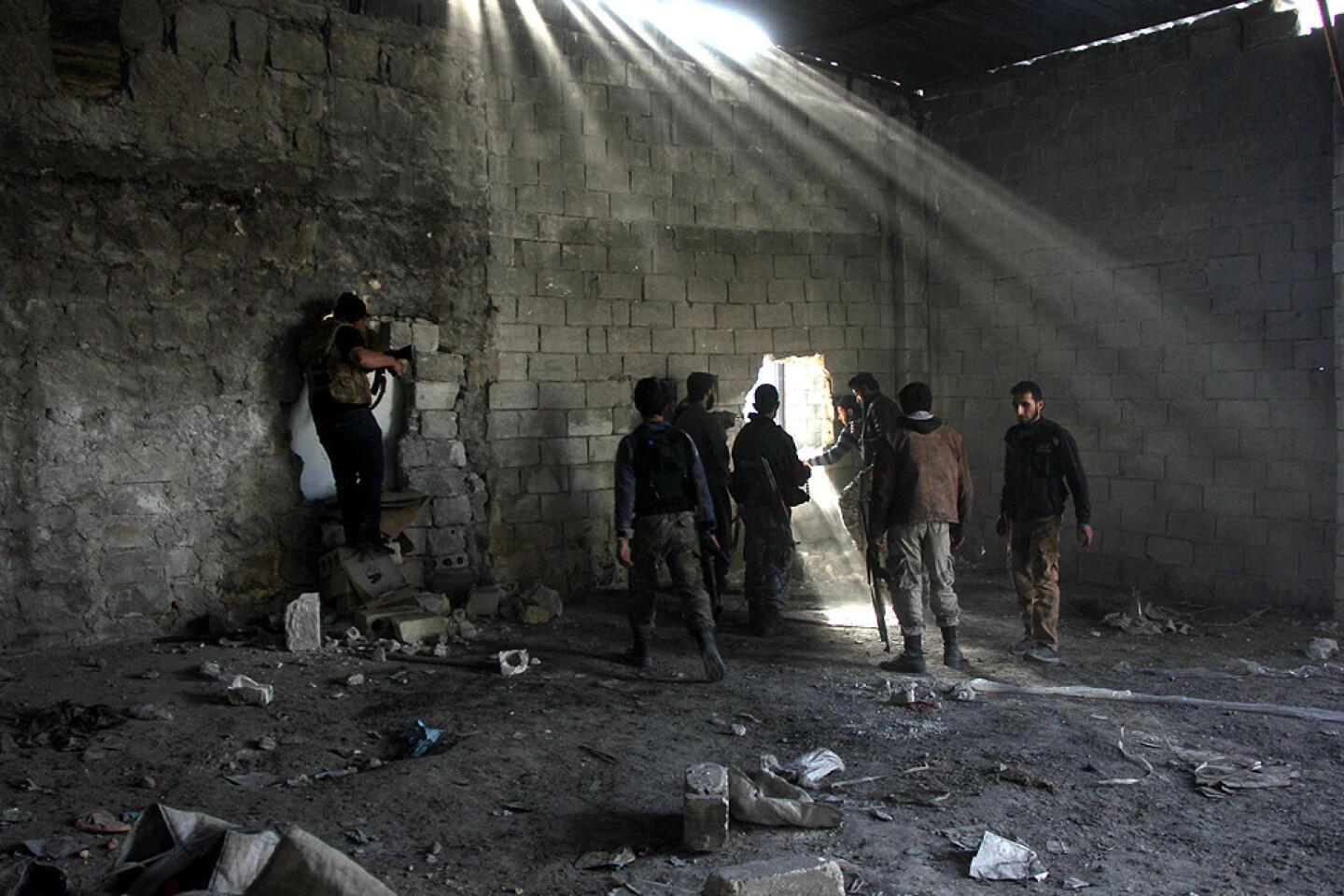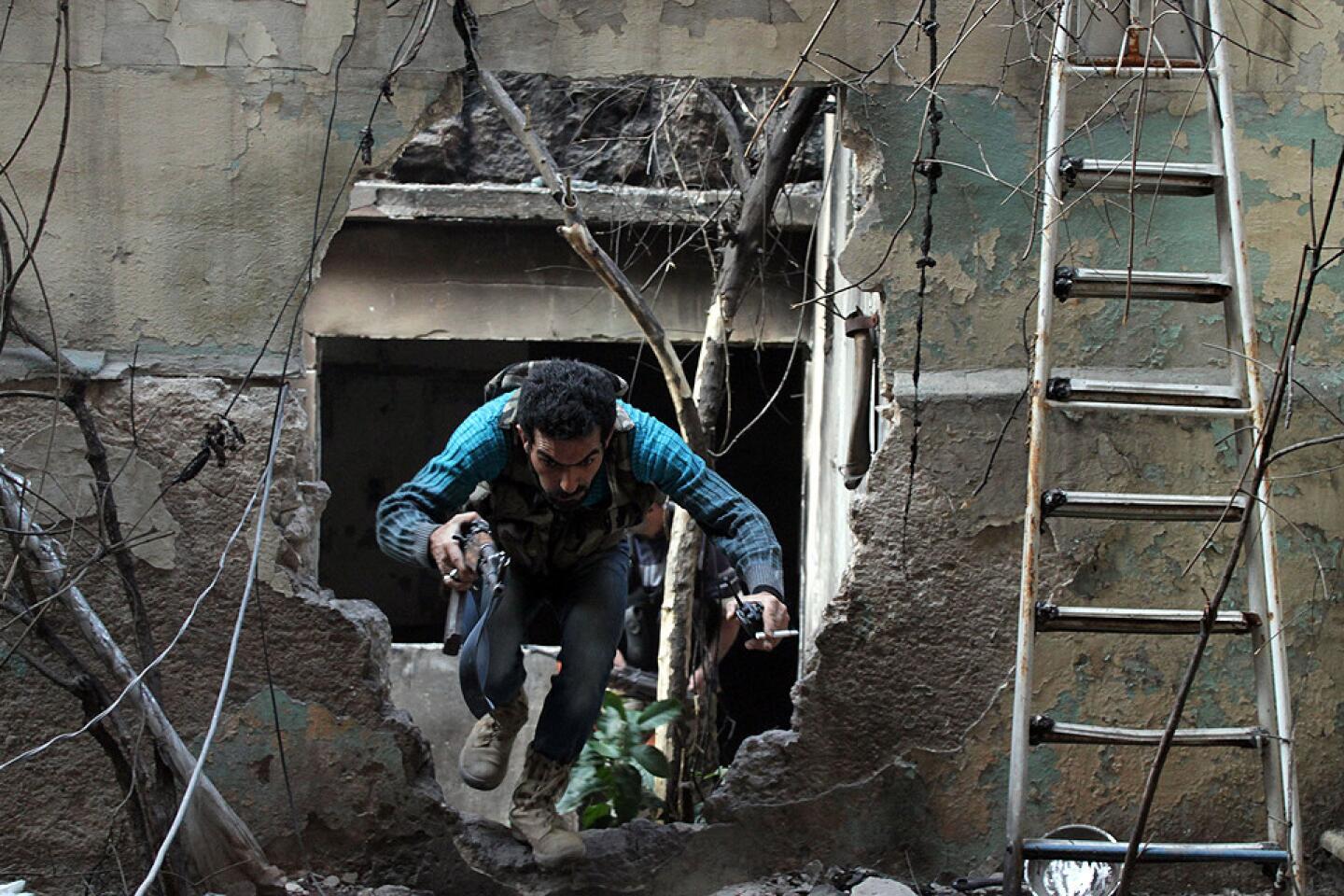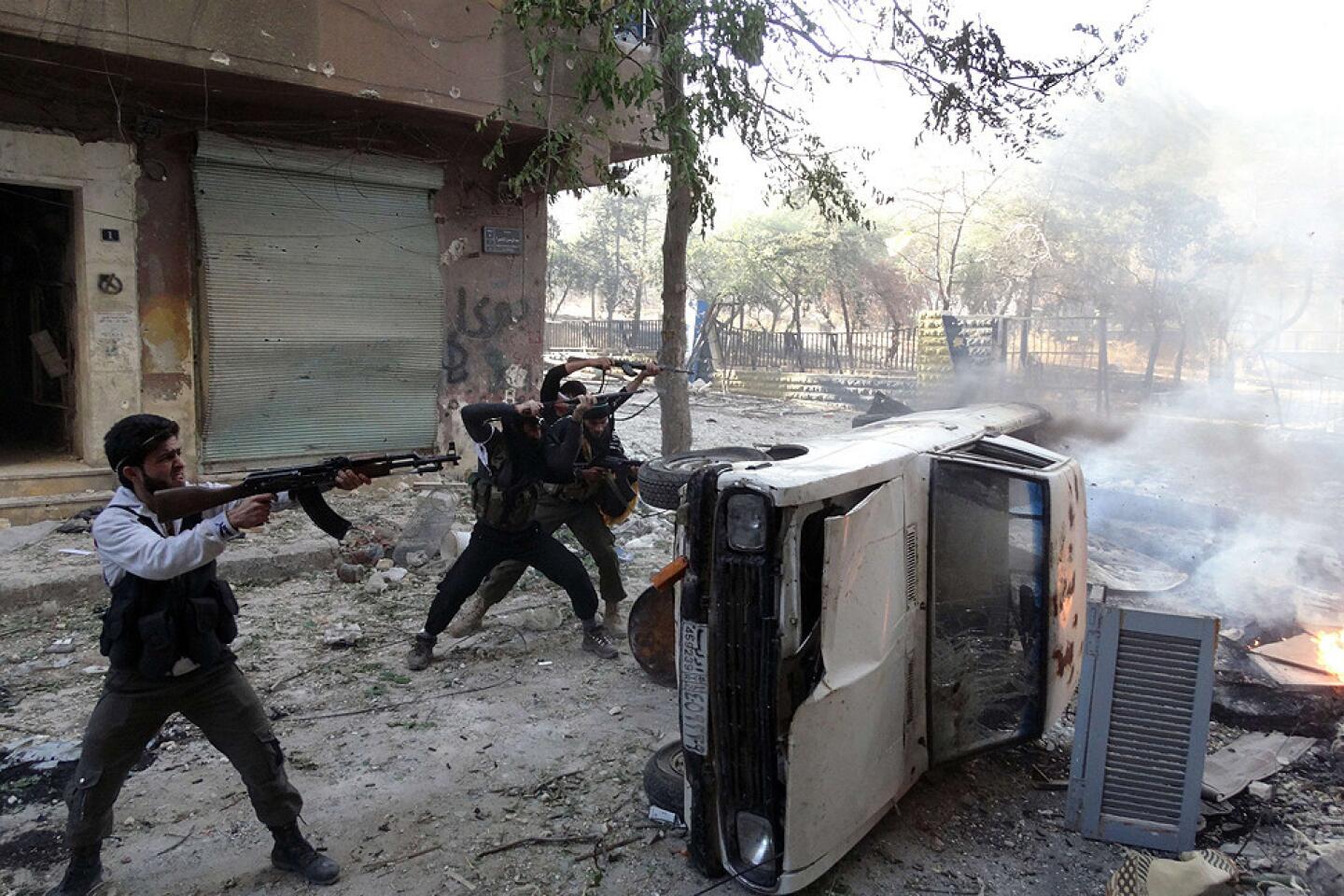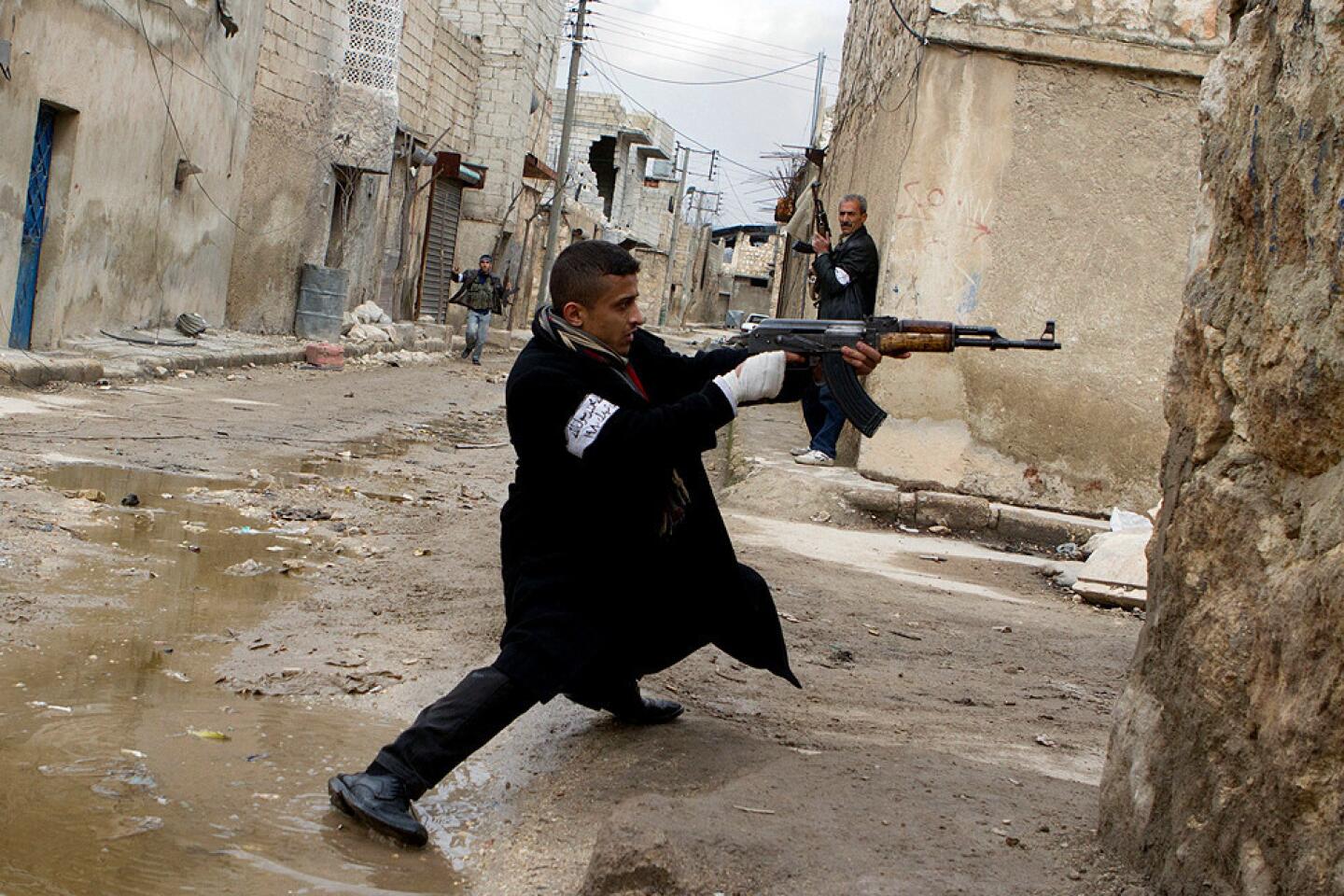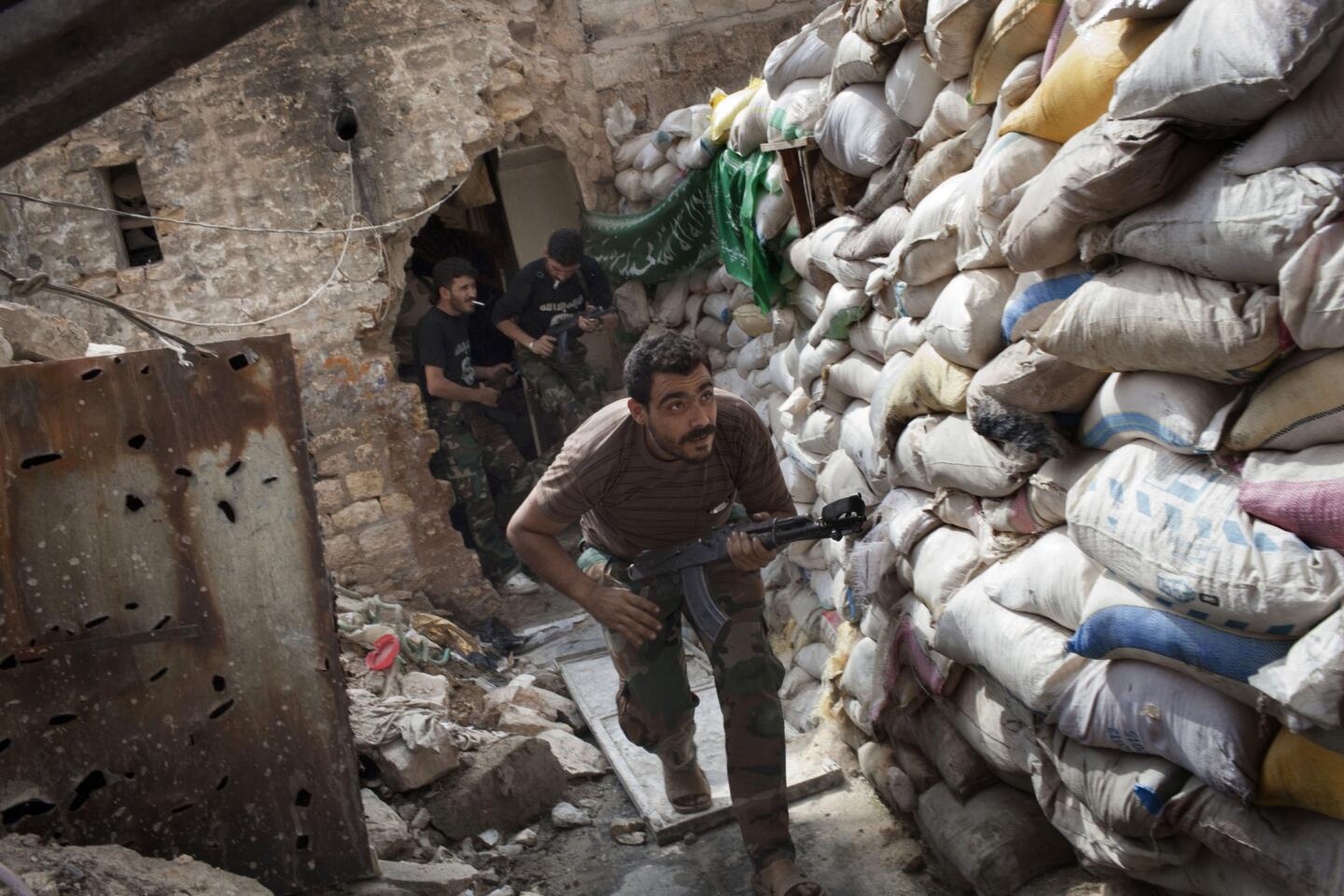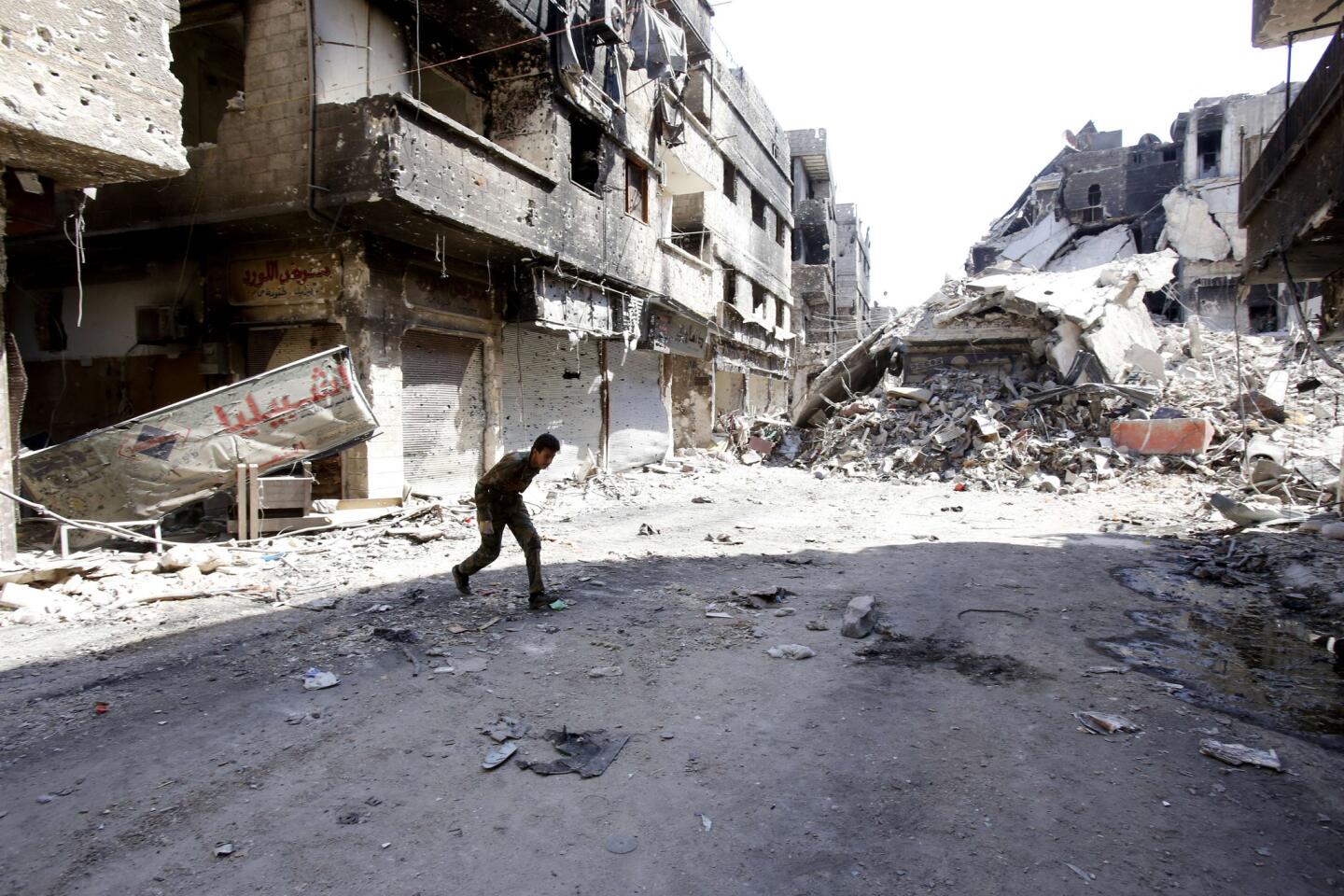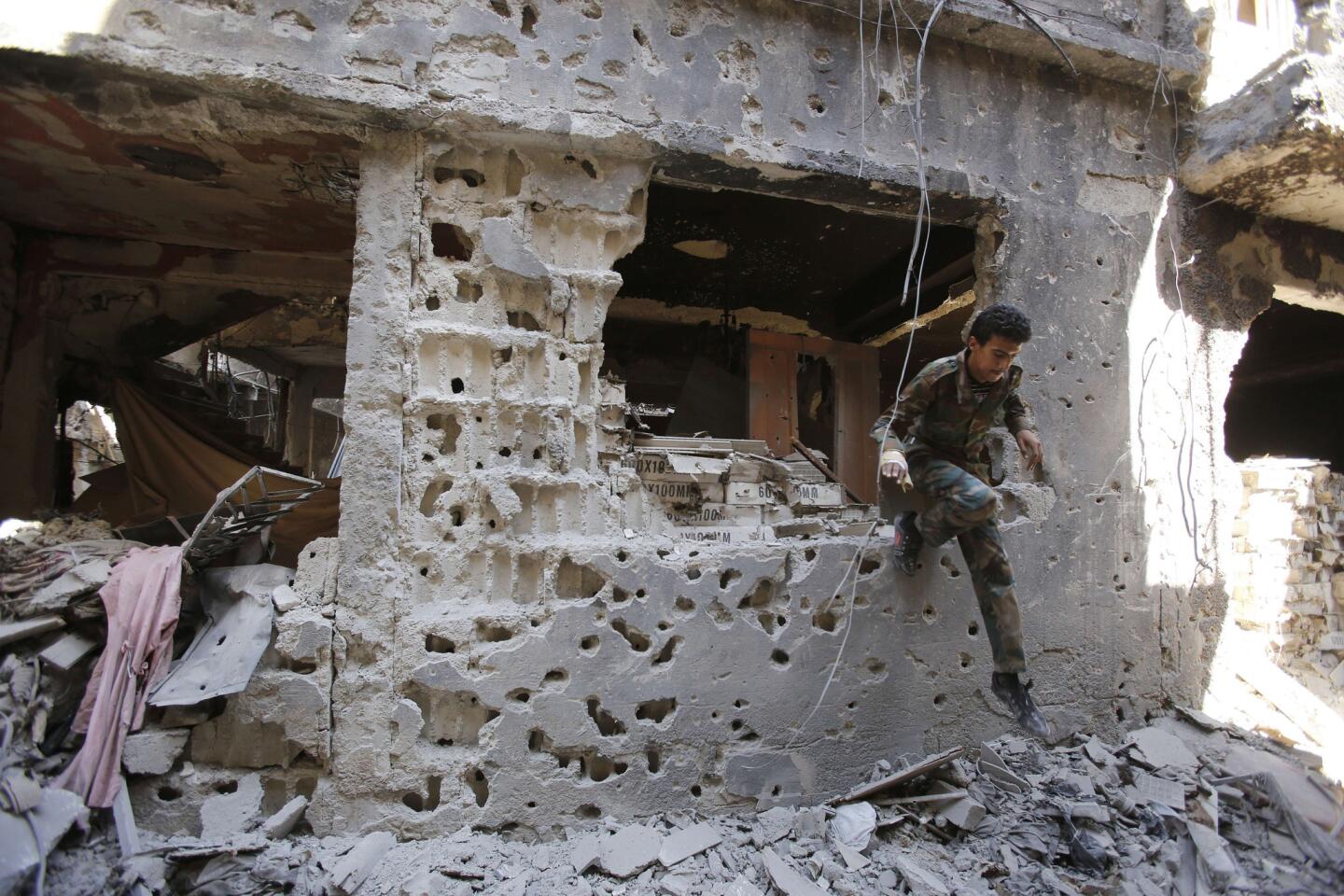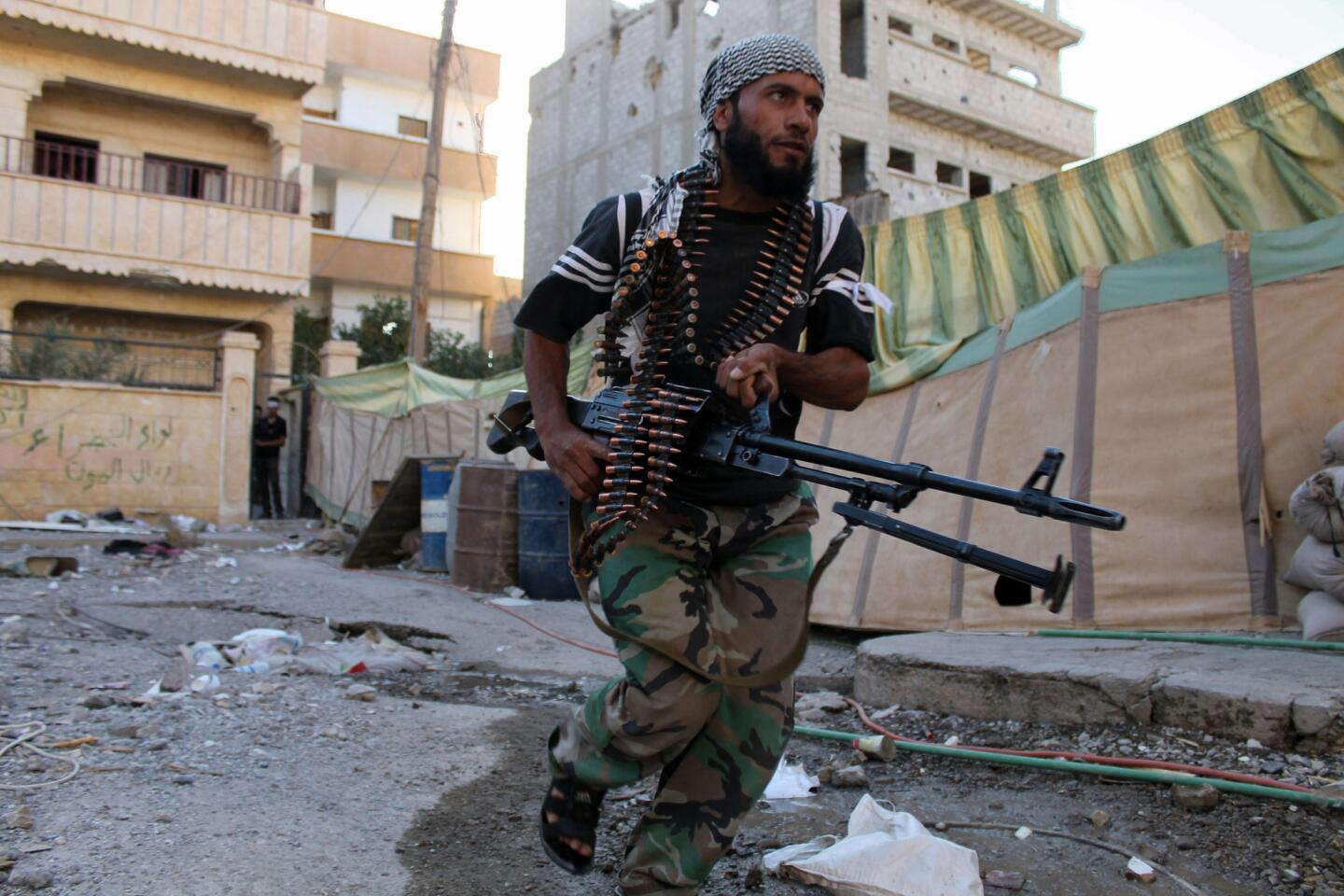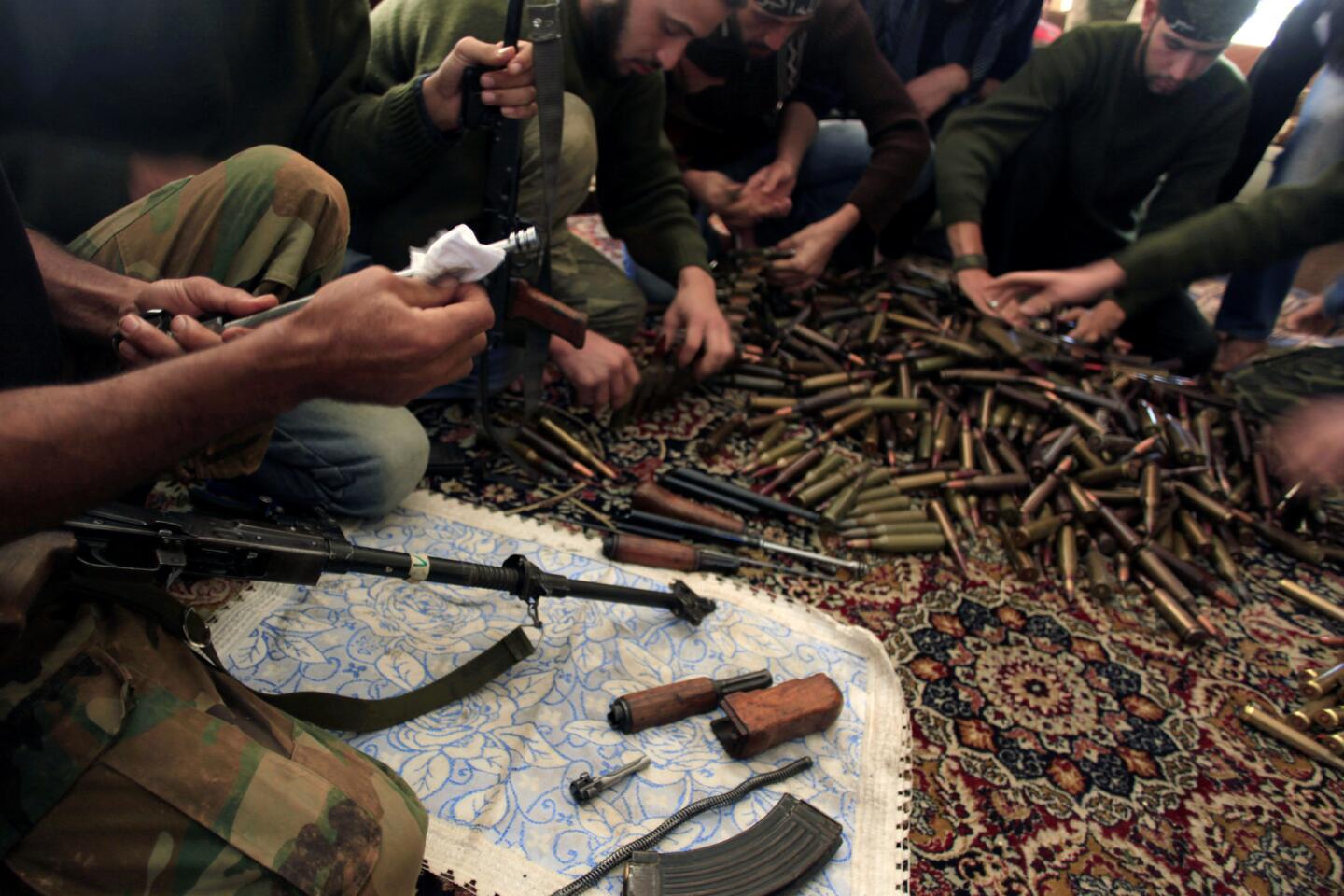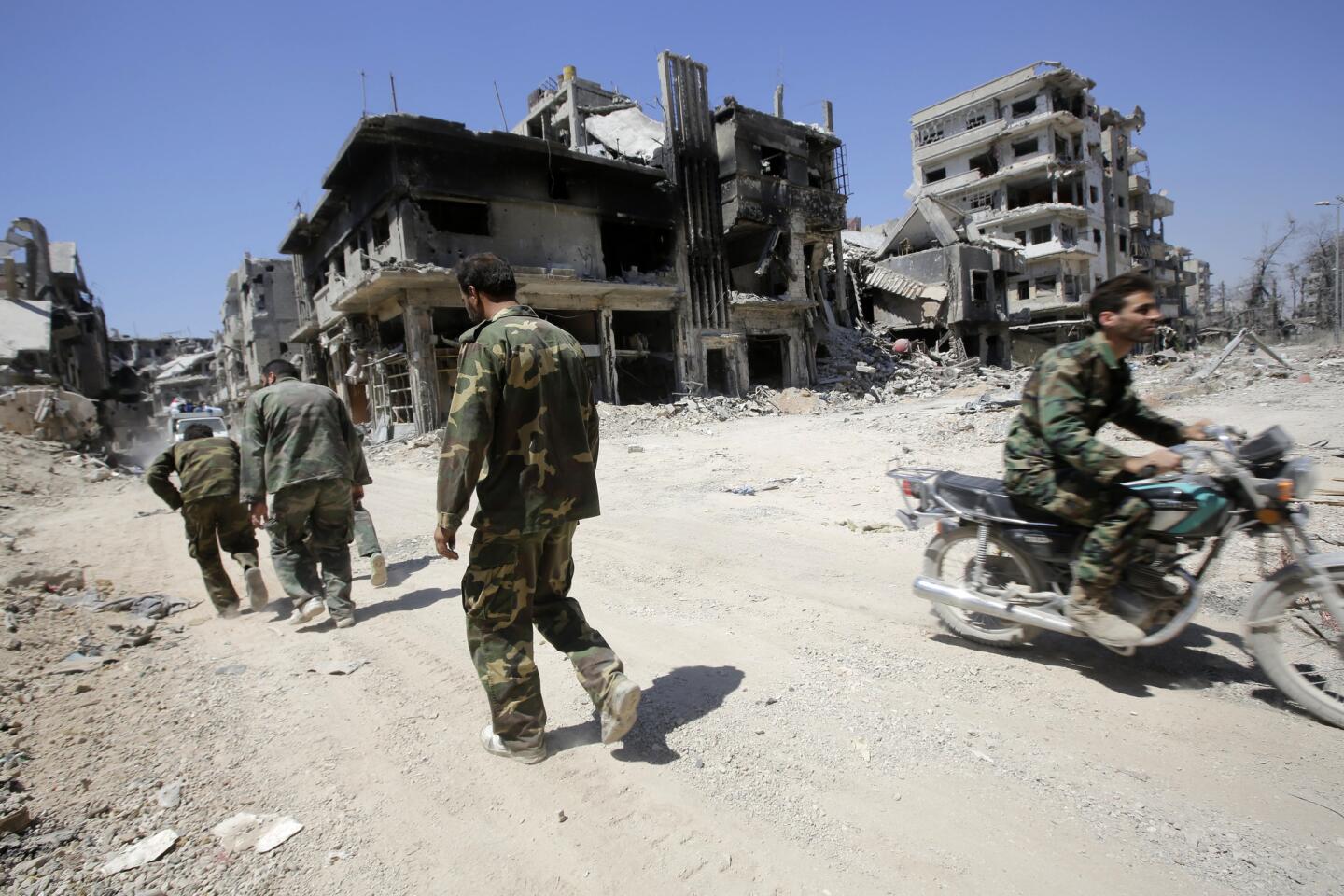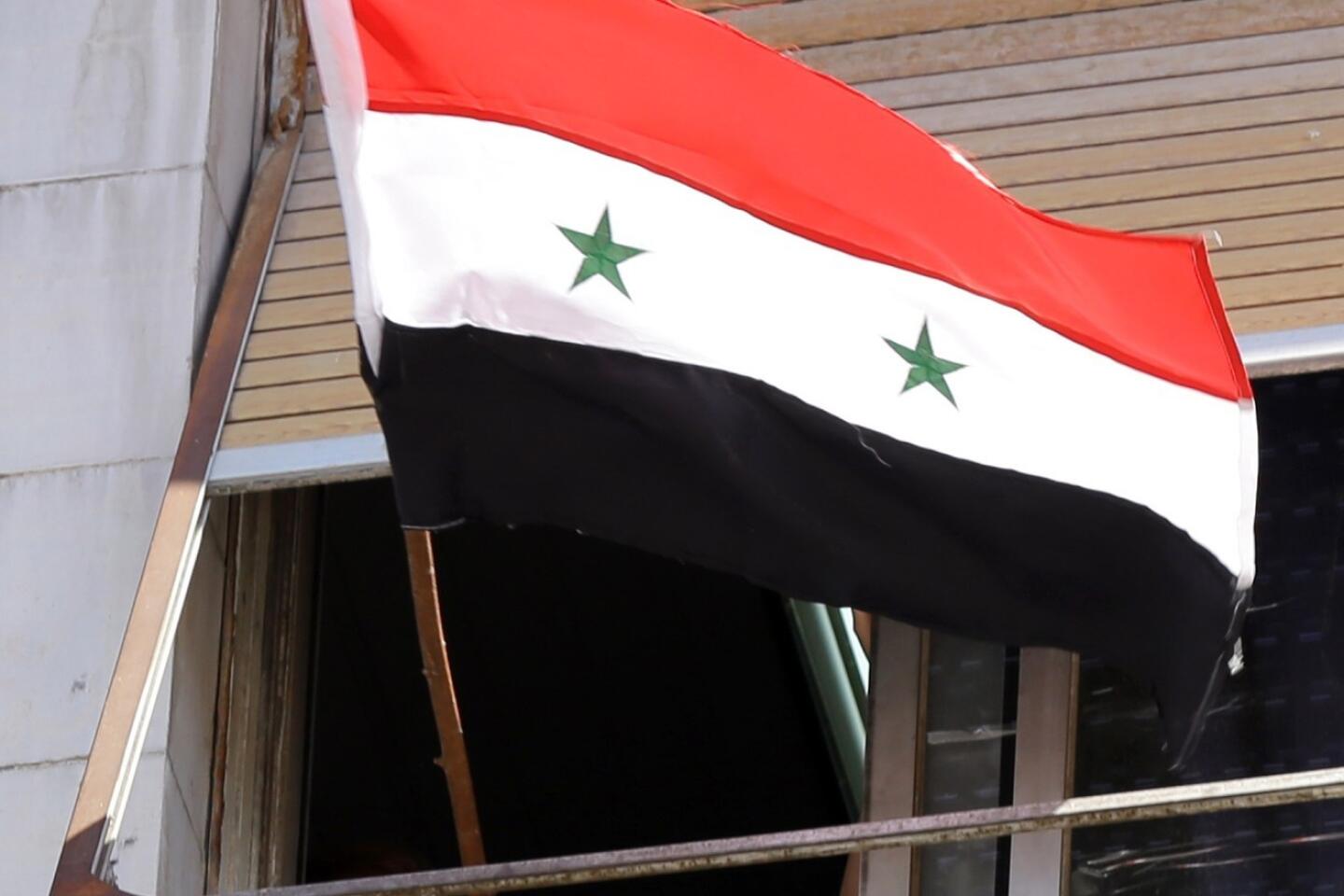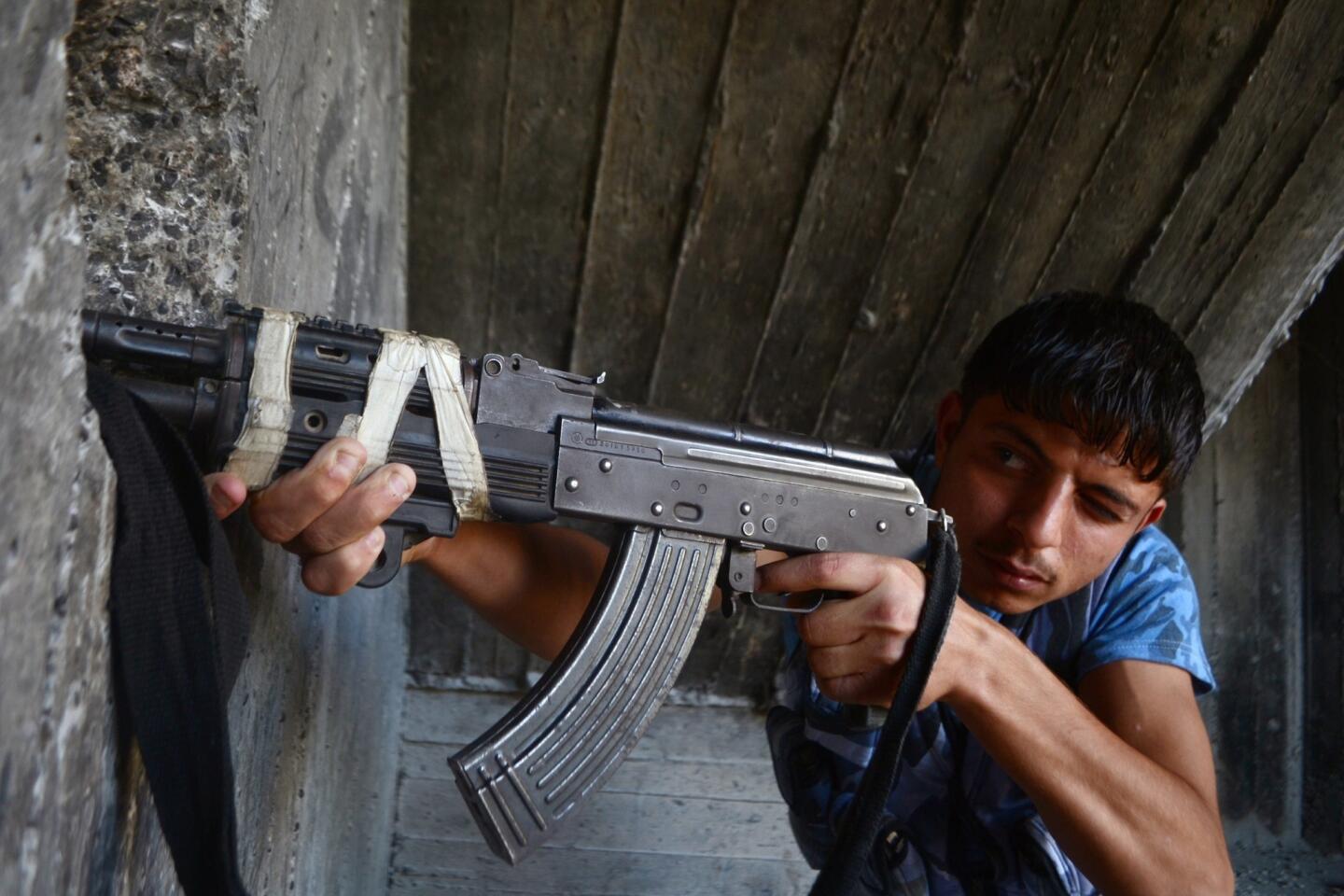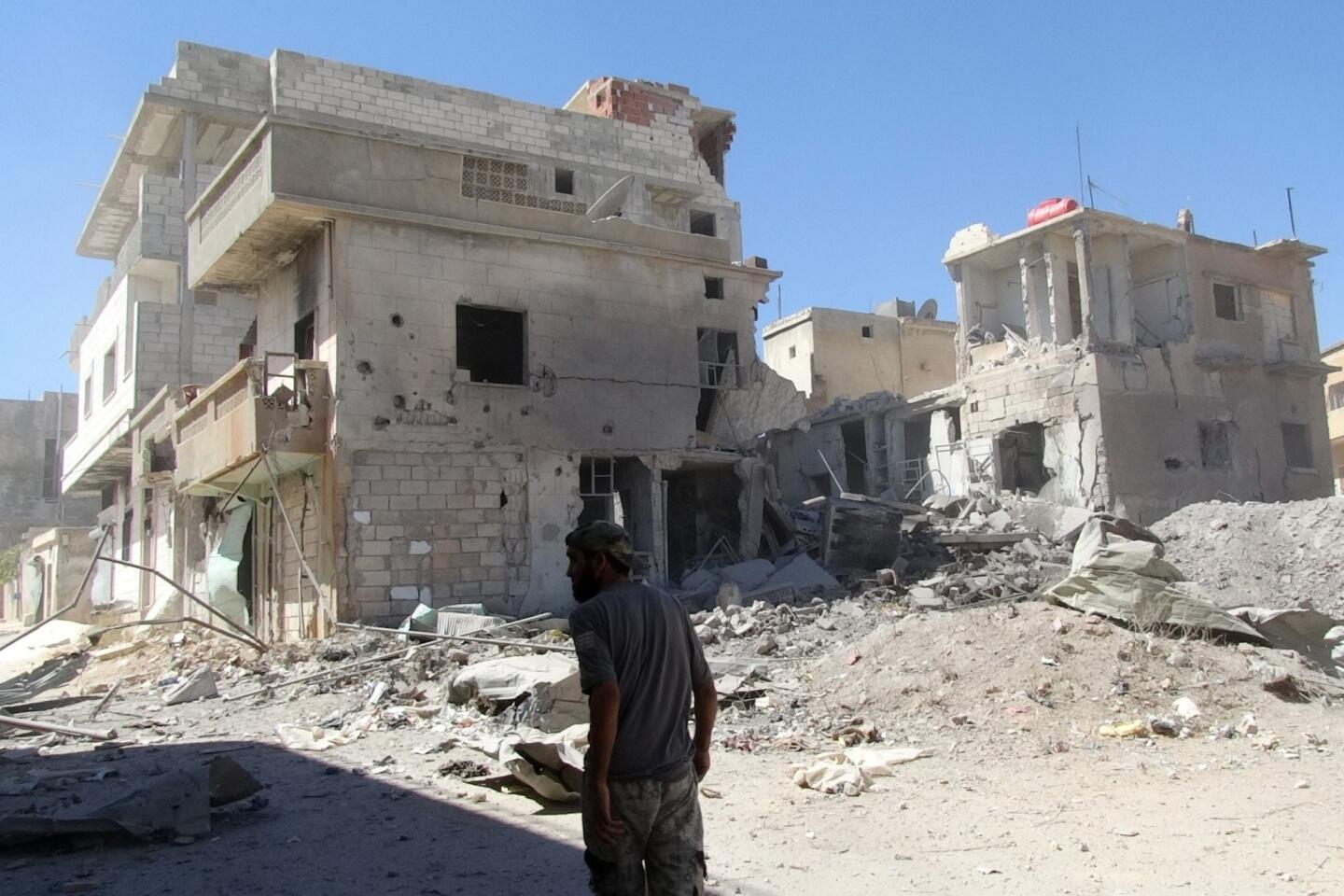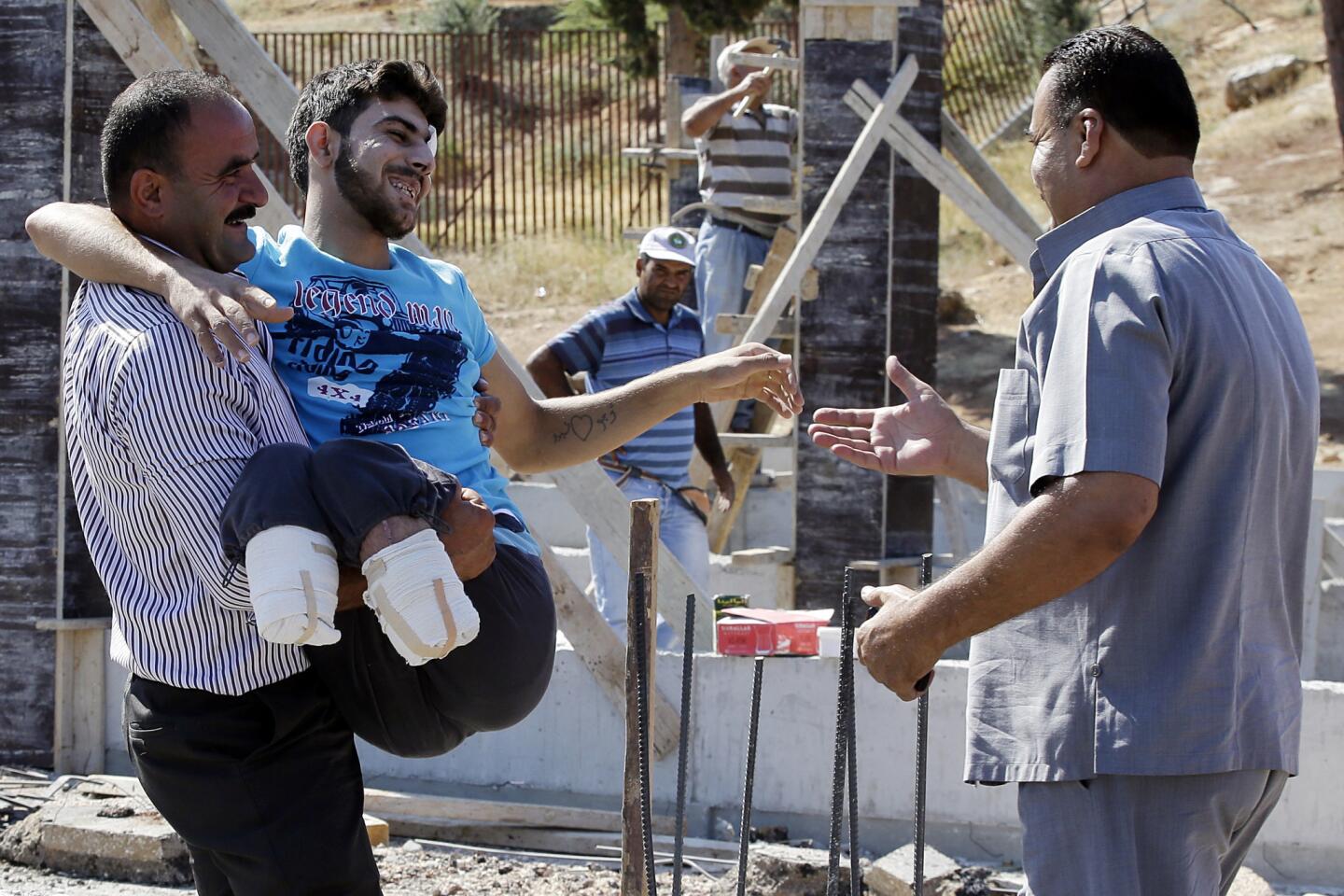Syrian rebel groups form Islamic alliance
- Share via
Nearly a dozen of the largest Syrian rebel groups, including one linked to Al Qaeda, have formed an Islamic alliance that could serve as the basis for a future political bloc and have denounced the Western-backed Syrian National Coalition.
The bloc explicitly called for sharia, or Islamic law, to be the sole source of legislation in Syria, which for decades has been governed under iron-fisted secularism by President Bashar Assad and his late father, Hafez Assad.
Members of the alliance said Wednesday that an Islamic state represented the true wishes of the majority of Syrians, but added that it would not be forced upon people.
The announcement makes public what many of the opposition militias have said. They maintain that the exiled coalition leaders are out of touch with the deteriorating situation in Syria and do not represent those who are living and fighting there.
“This force believes that those deserving of representing it are those who have lived its burdens and shared in its sacrifices of honest sons,” the statement says.
The rejection of the coalition does not necessarily extend to the Western-backed Syrian Military Council, which has been criticized and praised by opposition groups for the amount of weapons it has funneled to them.
The statement came late Tuesday ahead of the arrival of United Nations inspectors in Damascus on Wednesday to investigate the use of chemical weapons.
The alliance includes groups aligned with the mainstream Free Syrian Army, Islamist groups that fight alongside them and the Al Qaeda-linked Nusra Front, which the Obama administration has labeled a terrorist organization. The Al Qaeda-linked Islamic State of Iraq and Syria, which has more foreign fighters and has increasingly fought against mainstream FSA groups, is not a signatory to the agreement, but its joining has not been ruled out.
Internal fighting has threatened to further weaken the armed opposition, which has long been plagued by a lack of hierarchy and a dearth of weapons.
“The main goal is to unify the fighting forces,” said Bashir Saleh, a spokesman for Al Tawheed Brigade, one of the main orchestrators of the alliance.
Last week, the Islamic State and a smaller FSA group clashed in a northern town near the Turkish border. The hostilities were just one reason for the sudden formation of the alliance, Saleh said.
He said the announcement also came as many Syrians still in the country pressed opposition leaders in exile to not attend international peace talks in Geneva, which will include Syrian government representatives. A political solution must come from within Syria and not be orchestrated by the international community, Saleh said.
“The problem is the coalition is outside and it doesn’t know what is happening inside,” he said. “Maybe one or two or three of the coalition members have come and entered Syria, but then they leave quickly like they are foreign visitors.”
Rebels and activists were wary of the Syrian National Coalition when it was formed last year, but were willing to give it a chance, said Abu Zaki, a leader of the Salafi Suqoor al-Sham brigade, a member of the alliance. But the coalition has exhibited its ineptitude time and again as it gave in to Western and Arab pressure and elected an interim prime minister only to have him resign soon after, he said.
There were early signs that the Islamic alliance could find favorable support. On Wednesday, the Aleppo provincial council, which was formed this year in Turkey with the support of the coalition, also said it rejected any interim government formed outside Syria.
“We welcomed our brothers on the outside to partake in the revolution,” Abu Zaki said. “But when they didn’t represent us and the demands of the revolution, then we had to release the statement.”
More to Read
Sign up for Essential California
The most important California stories and recommendations in your inbox every morning.
You may occasionally receive promotional content from the Los Angeles Times.
